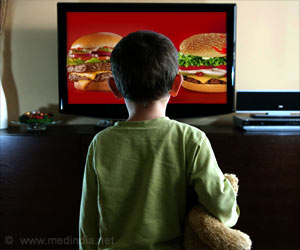Choice -Do we Really have a Choice?
- Rick J Petronella PhD
- Oct, 24, 2023
- Newsletter
- No Comments
Dr. Rick Petronella

October 2023 Newsletter
Choice -Do we Really have a Choice?
“You are always one choice away from changing your life”. Mary Blochowiak
We often hear the phrase “you have a choice” daily. Whether choosing what to eat for breakfast or deciding on a career path, we are constantly faced with choices. But do we really have a choice, or do external factors predetermine our decisions? What is the concept of choice? Do we truly have control over our decisions?
Making the right choices is an essential part of life. We must all strive to become aware of our wants and needs and then use this knowledge to make our best decisions. Knowing oneself is not always easy, but it is an essential part of self-discovery and finding true fulfillment. By understanding our strengths and weaknesses, we can better understand our choices and why we make them. We can learn to make informed decisions that align with our values, goals, and desires. By becoming aware of our capabilities and limitations, we can make better choices for ourselves and others. Furthermore, we can begin to take responsibility for our actions and life paths, enabling us to own our destinies. In short, choice is a powerful tool, and we must understand ourselves to make the best choices for our lives.
The Illusion of Choice
In 2012, there was a popular dating game TV show called “The Choice,” Contestants were allowed to choose a potential romantic partner based solely on their voice and what they say behind the screen. While this may seem like a fun and lighthearted concept, it raises the question of whether or not we truly have a choice in who we are attracted to.
Studies have shown that societal norms and media portrayals may influence our preferences and attractions. This means our choices may not be as accessible as we think. We may be subconsciously influenced by external factors, leading us to believe we have a choice when our decisions are predetermined.

Another example of the illusion of choice is seen in advertising. Companies spend millions of dollars on marketing and advertising to convince us that we can choose which products we buy. However, many of these choices are limited to a few brands dominating the market.
The Pressure to Conform
In addition to social conditioning, there is pressure to conform to societal norms and expectations. We are constantly bombarded with messages telling us how to look, act, and think. This can lead us to make choices that align with these expectations rather than what we truly want.
For example, a person may choose to pursue a certain career path because it is seen as prestigious and successful, even if it is not their true passion. This pressure to conform can limit our choices and prevent us from making decisions that align with our true desires.
To not choose is to choose. It is also important to recognize that our choices, or lack thereof, have consequences. We must take responsibility for our decisions and the impact they have on our lives and the lives of those around us. By taking control of our choices, we can truly create our own life.

There is a quote by Irving Berlin, “Life is 10 percent what you make it; and 90 percent how you take it”. This becomes very real to each of us as we recognize we even have a choice in how we approach our lives. There are always going to be difficult times when we find ourselves impacted by another’s decision yet even then, we can choose how we will walk through that situation.
While it is wise to seek counsel before you make a decision, it is also important to make the decision. Do Not wait any longer than necessary.
Our choices are a reflection of our intentions. When we make choices with meaning and purpose, we are more likely to achieve our goals and create a fulfilling life. By setting clear intentions and making choices that align with them, we can create a meaningful and purposeful life.
Conclusion
In conclusion, the concept of choice is complex and multifaceted. While external factors may influence our decisions, we still have the power to make our own choices. By taking control of our choices and being intentional in our decision-making, we can create a life that is truly our own. So, the next time you are faced with a choice, remember that the power to choose lies within you.
In short, choice is a powerful tool, and we must understand ourselves to make the best choices.
When it comes to making choices, it is important to remember that no one can make the right choice for you—only you can do that. The choices you make can have a significant impact on your life, and they should be taken seriously.
Knowing yourself—your strengths, weaknesses, and values—is the key to making the right choices. Taking the time to consider all the available options and what each one might mean for your future can help you make informed decisions that will lead to a better and more fulfilling life. Ultimately, choice is all about finding what is right for you. By being aware of your wants and needs and making decisions based on those, you can ensure that you are taking the proper steps towards achieving your goals. You will be glad you did.
“I have set before you Life and Death, the blessings and the curse. “Choose life “so that you and your children can live.” Loving the Lord your God, obeying His voice, and holding fast to Him. Deuteronomy 30:19
Quiz: How Well Do You Handle Choices?
At its best, fear is an instinctive, natural ability to help us survive. At its worst, it’s that nagging voice inside our heads that heralds doom and disaster even before we get started on something. Fear keeps us from taking risks that might enrich our life or holds us back from doing some things we need to do.
Do we experience new and exciting vistas? Get involved with that person or group? Accomplish something really great? Fear says, “Not on your life.” To discover the role fear plays in your life, complete the following Thriving quiz.
True or False
Set 1
____________1. My self-talk is filled with can’t, shouldn’t, and ought to.
____________2. I never talk about my fear of choosing. If I do, people will think I’m stupid or weak.
____________3. I often think about bad things that might happen if I choose.
____________4. I feel trapped in or avoid social situations where it might be difficult to make a choice.,
____________5. I need approval from family or peers before going after dreams and goals.
____________6. The fear of making the wrong choice is horrendous; I want to crawl away and hide.
____________7. I’d rather not choose to get involved in a relationship because I’d have to surrender my power and lose myself.
____________8. To avoid rejection, I try to please people and take my needs and desires out of the equation.. Hence, I will not choose.
____________9. I often compromise what I want to do in situations to avoid conflict.
____________10. A sure-fire way to end up disappointed is to want something too much so I will not choose.
____________11. When things seem to be going well for me, I get uneasy that I’ll do something to ruin it.
____________12. I find expressing undesirable emotions, such as anger, difficult.
____________13. When confronted by others, I feel “spacey” or disconnected from my body.
____________14. I’m so nervous about approaching my boss for a raise I’ll never choose to ask for one.
____________15. I’d rather stick to what I know, even if it’s not great, than risk change.
Set 2
____________1. I expand my comfort zone by taking a small daily risk, such as making one phone call or asking for one thing I want.
____________2. When I feel fear, I keep my mind on the details, not the Big Picture. I complete the report word by word, pay the bills one by one, and see the group individual by individually.
____________3. I look to others to model courage for me. Their courageous behavior encourages confidence.
____________4. When something scares me, I get information, replacing fear with knowledge then I make the decision.
____________5. I visualize myself doing what I’m afraid to do; I see myself as graceful, strong, and capable.
If you answered true more than false in the first set of questions, fear may be playing a bigger role in your life than you’d like. In the second set, a true means you’re successfully employing strategies to master fear. If your fears are pervasive or severe, you may be suffering from an anxiety disorder, in which case you should definitely seek help. If your fears are not debilitating but still get in the way of doing what you need or want to do, asking for help can make all the difference.